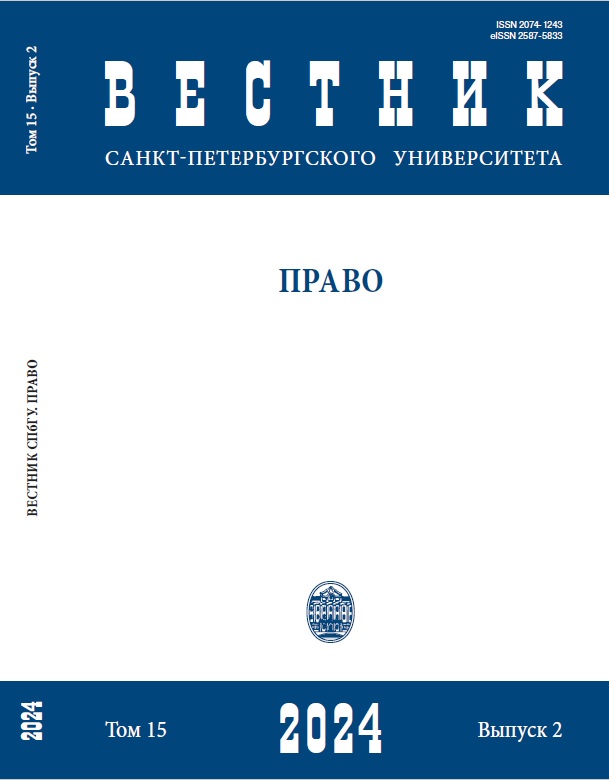European Union civil liability frameworks in the age of artificial intelligence: Assessing current regimes and future prospects
DOI:
https://doi.org/10.21638/spbu14.2024.210Аннотация
This study intends to evaluate the suitability of the EU’s liability regimes in solving AI-related concerns by carefully examining the current legal environment. It also examines the consequences and viability of using these frameworks to consider the special features of AI technology. Furthermore, the article offers insight into the growing nature of AI liability inside the EU and its potential by thoroughly examining current regulations and evaluating the suggested
revisions and proposals for prospects. Some of the questions that are the focus of the attention in the article are the burden of proof and its allocation in cases involving AI-caused damages, the standard of proof required to establish liability in AI-related cases, whether a preponderance
of evidence, clear and convincing evidence, or a higher standard should be applied in
different scenarios and the difficulties in establishing causation in AI-related damages. The method used in this paper will consist of conducting a comparative analysis based on the hypothesis (bearing in mind that there is no established court practice in the EU with regard to this matter) of how different jurisdictions in the EU handle liability and proof standards in AI-related cases, highlighting of any emerging trends or most suitable doctrines and practices.
These questions certainly open a discussion of the potential future developments in AI
liability law, considering the rapid advancements in AI technology and how legal standards might need to adapt as AI systems become more sophisticated. By focusing on these practical aspects of AI liability, this research can offer valuable insights into how the legal system can effectively address the challenges posed by AI technology and set the legal bases for fair and just outcomes for all parties involved.
Ключевые слова:
artificial intelligence, civil liability, burden of proof, standard of proof, causation, damage
Скачивания
Библиографические ссылки
Загрузки
Опубликован
Как цитировать
Выпуск
Раздел
Лицензия
Статьи журнала «Вестник Санкт-Петербургского университета. Право» находятся в открытом доступе и распространяются в соответствии с условиями Лицензионного Договора с Санкт-Петербургским государственным университетом, который бесплатно предоставляет авторам неограниченное распространение и самостоятельное архивирование.






